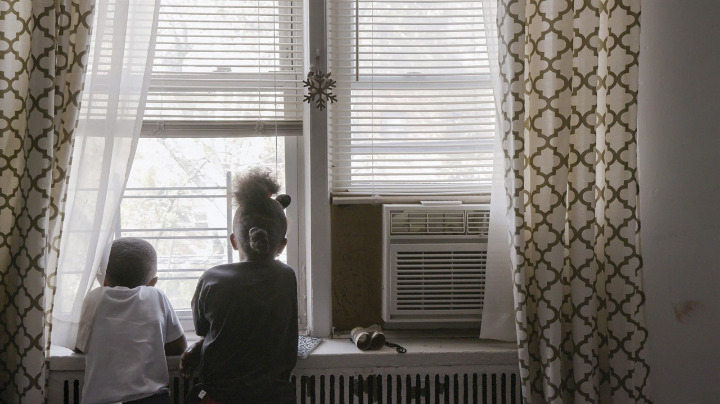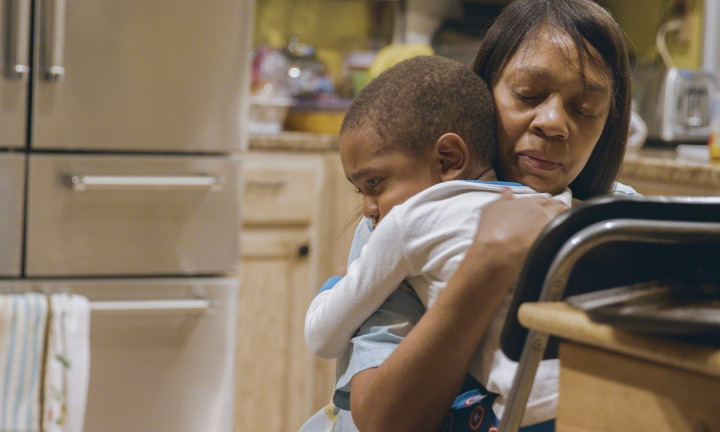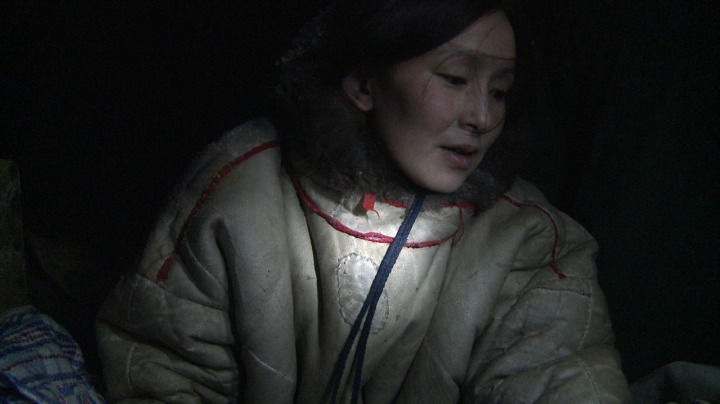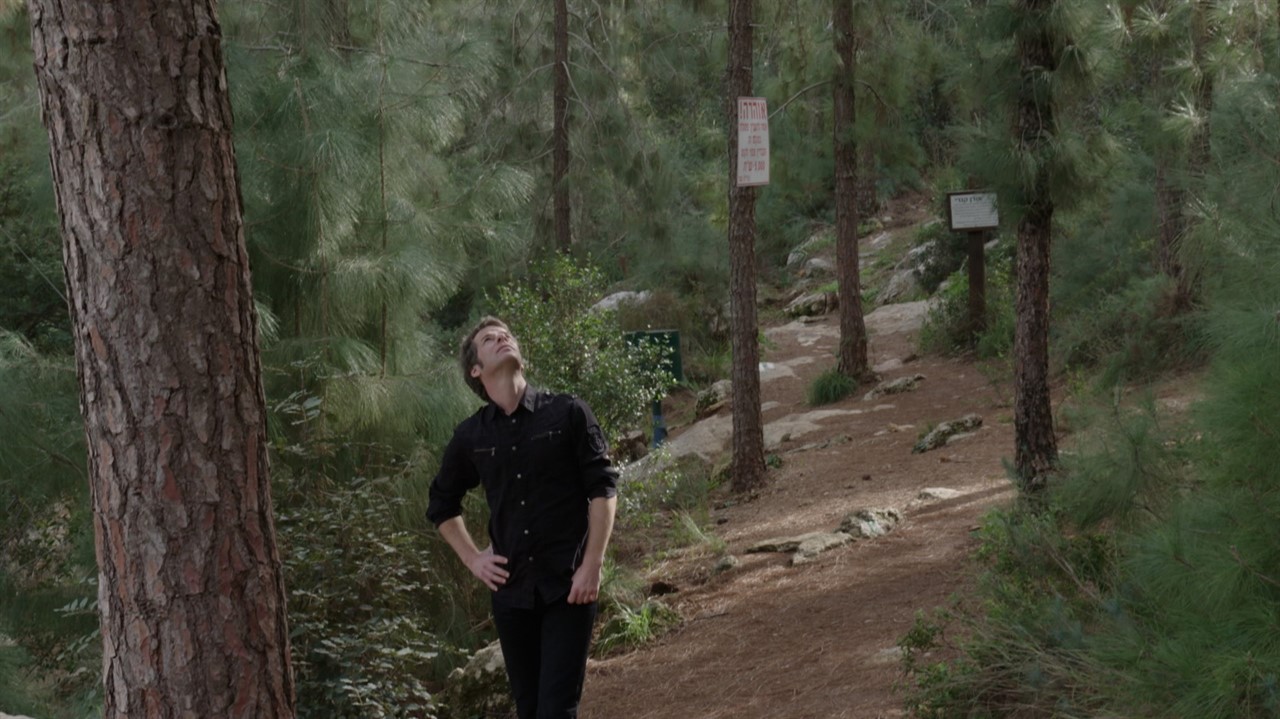The entrance of Dee’s Tots, the 24-hour daycare captured in Through the Night, is plastered from floor to ceiling with photos of all the children that have walked through its doors. The collage of smiles over the shoulder of every drop-off and pick-up make it feel less like a daycare, and more like the biggest family in the world.
The round-the-clock childcare centre is both a second home and a lifeline for the families that rely on it. The documentary follows two working class women of colour, Marisol Valencia and Shanona Tate, as days and dollars are stretched thin to keep their kids safe and bills paid.
Director Loira Limbal captures the community that depends on Dee’s Tots, and the woman at its heart, Deloris “Nunu” Hogan, with a knowing gaze. The Afro-Dominican filmmaker was raised by a single mother and is a single mother herself.
“Thirty years later, support still remains very limited for working mothers across the country,” wrote Limbal, in a director’s statement. “And if you happen to be a working-class woman of color, this country still forces you to make impossible decisions on a daily basis.”
Meet “Nunu” and “Pop Pop”
Deloris “Nunu” Hogan is the soul of the film and loving owner of Dee’s Tots, along with her husband Patrick. Through the Night takes place inside the daycare with them, their staff, and the children, witnessing moments of immense patience and tenderness.
The Hogans are tired. The daycare has children coming and going at all hours of the day, as many single-parent families work night shifts, overtime, and multiple jobs to make ends meet. A handful of kids are tucked into sleeping mats for overnight stays, as the couple takes shifts keeping watch till daylight.
After first learning of Dee’s Tots, it took years for Limbal to gather the courage to knock on the door and pitch the film. Once she introduced herself, she felt an “automatic rapport” with Deloris.
“I can’t overstate how much of a collaborator Nunu was, beyond being a protagonist in the film,” said Limbal, in an interview with POV. “I consulted with her on everything, pretty much every step of the way, including which parents to approach about being in the film.”
Making time
Outside of the daycare, the doc follows the lives of single mothers Valencia and Tate as they go to great lengths to provide for their children. Tate is a nurse working night shifts, and Valencia juggles two retail jobs, and they both have two children.
Between work, the kids being in school, and their time at Dee’s Tots, there’s often little room for quality time with their children. The film captures the tenderness and tragedy of needing to squeeze these moments in.
Limbal recalls an example of this that stuck with her. On her break on the night shift at the hospital, Tate calls the daycare to slip in a goodnight to her children. She checks in on what they ate for dinner and her daughter’s asthma.
“I remember running through the kitchen like, we have to get this,” said Limbal. “I just found it very profound–even when parents are not there, they’re parenting.”
Limbal carved out small moments over the course of four years to film Through the Night. The single mother of two made the film working nights, weekends, and holidays outside of her full-time job.

Filming the familiar
Aside from the logistical challenge of finding time to film, it was also an emotional challenge to capture experiences and struggles so close to Limbal’s own. She knows the complexity of childcare from her childhood and her own experience as a mother.
When babysitters would cancel and family would flake, Limbal’s mother, who worked as a home health aide, would sometimes have no choice but to leave a young Limbal to watch her baby sister.
“I felt very raw and vulnerable, which was a hard place to inhabit as a director,” said Limbal. “People are looking to you to have the answers and to be able to drive this thing forward.”
Limbal said she was able to move through it with the support of her crew, a team of fellow women of colour, and the profound connection she had with the film’s subjects.
“I think I would not have been able to complete the film, had it not been for the people in it and the relationships that we developed,” said Limbal. “I felt cared for by them as well.”
Flipping the script
In creating a film so close to her heart, Limbal and her team crafted Through the Night with a deliberate gaze. The documentary was filmed and edited with an awareness of the dominant tropes about the lives of women of colour, in order to counter them.
“We had to come up with a cinematic approach for that,” said Limbal. “It became about trying to make visible what care and tenderness looks like in the lives of people working around the clock. The dominant story about this community is all struggle, and yes, there is a lot of struggle, but no human being’s life is just a struggle.”
Limbal’s verité approach puts a microscope to every little fiber of the patchwork of experiences that make up the daycare. Deloris is there to greet kids from their school bus with a “Hi baby!” and a big hug. Hair is twisted into knots with care; finger-counting for math homework is encouraged.
The editing of the film helps it fall into a peaceful, meditative rhythm that allows the audience the time and space to sit with the characters. In finding the pace, Limbal said the team used breath “as a kind of metronome, to figure out how long we needed to hold transition shots.”
The film also sits with the mundane, everyday labour of running a home full of dozens of little feet, mouths, and sticky fingers. Tables are wiped down, dishes are done, Deloris wipes a toilet seat while keeping an eye on the kids. These are small acts of care too.
“This is what care and love and tenderness looks like, and we do this on an everyday basis despite what we might be confronting in larger society,” said Limbal. “I wanted to create something that could capture us in a more nuanced, complex, and whole way.”
Hot Docs runs April 29 to May 9.
Visit the POV Hot Docs Hub for more coverage from this year’s festival











